Achievement 3 by @sage.lee Task : Content Etiquette
What Is Plagiarism ?
A common practice of ‘stealing' another person's content or idea, most often ignored in most non formal settings which many people practice consciously or subconsciously. Over the years, many have fallen victims to the tricky nature of this practice and I must say, clearly enlightening whomever comes across this article about the concept of this practice is my ultimate goal.
Definition:
According to my own understanding, plagiarism is the act and practice of stealing or copying the content(s) of an original author, publishing and distributing it and directly or indirectly taking ownership of the content(s). Plagiarism can be found in the following fields: academics, business, art, journalism, entertainment etc. Simply put, if you use someone’s content and call it yours, then you're plagiarising. If you help push it, you are also plagiarising and if you twist words of the original content you’re still guilty. That being simplified, if you pay someone (by any means whatsoever) to create or boost your reputation as the owner of an original content, then both you and the ‘benefactor' are guilty of plagiarism. To further expatiate, a publisher could be found guilty of plagiarism if he/she publishes a plagiarized content. A teacher or supervisor can also be guilty of this practice when he/she approves a plagiarized work.
Types Of Plagiarism
Just like I stated earlier, plagiarism cuts across different fields of study and as such, we’ll be looking at the types of plagiarism in relation to most of the known fields of study.
Direct Plagiarism:
Direct plagiarism is when you copy another person's content and you make no attempt whatsoever to acknowledge the original author.
Mosaic Plagiarism:
This is when a writer borrows phrases from another person's work without using quotation marks. It can also be the act of finding synonyms to words of an original content while still keeping to the same format and structure of the original content. It is most often called “patch writing"
Self Plagiarism:
Self plagiarism is the reuse of one's own content, whether completely or a section of it, without making reference to the original content.
Accidental Plagiarism:
This is when a writer indeliberately omits citations or not properly following citation procedures.
Reverse Plagiarism:
This is the act of giving credit of a content to the wrong person. It also includes citing a content to a wrong source.
What Happens If You Plagiarise ?
Anybody caught in act and practice of plagiarism is guilty by law and moral standards. It is a civil wrong. Also, plagiarism damages a person’s reputation and diminishes your sense of creativity. It leaves you heavily depending on others to make an achievement. In the case of a researcher who plagiarises, he/she could lose rights to research funds. As a business man who plagiarises business models and other contents, you can be sued and charged to court. A journalist may end up getting fired or suspended.
Why Do People Plagiarize ?
There are various reasons behind the act, practice and habit of plagiarism. They’re as follows;
• For students, in other to regain time lost while carrying out given tasks as a result of their procrastination, result to plagiarising so as not to fail.
• Laziness.
• Lack of commitment to work.
• In other to cope with heavy workload, many resort to plagiarising.
• Most other people plagiarise because they have the fear of failing. They see themselves as no good and steal from people who they believe are better than them in other to fit into community standards rather than develop themselves.
• Poor time management.
• Lack of interest is also one of the reasons for plagiarism. Lack of interest will make a person do anything to get done with the task as soon as he can and the only reason he would even want to complete the task is because he’s mandated to.
Plagiarism And Copyright Infringement.
A lot of people would actually argue that plagiarism is copyright infringement. The two concepts are quite similar, hence, the reason for their interchangeability.
I previously explained that plagiarism is using an original content or a copy of it and claiming ownership of it or not rightfully giving credits to the original author or citing the correct sources.
Copyright infringement is when you use a person's content which can come in different forms without authorization and approval from the original author to use it. This is to say that you can plagiarise a content without necessarily infringing on the copyrights of the content. I mean, you can ask for permission to use fully or partially, a content and still not make reference to the original author of the content, thereby giving an impression that you are the original author. This doesn’t mean you can’t be charged or sued as the offense is still punishable by law.
The same goes for copyright infringement. You can use a content far beyond the fair-use allowance and still give credits to the original author but not seek or get the authority of the original authors to release such content most especially if it is one that is financially benefitting. You will be sued and charged for copyright infringement despite not plagiarising the content.
Fair use is a minimal degree of usage of a content granted to non authors of that content which is copyrighted, without necessarily having to pay any royalty.
I hope I have successfully shed more light on the differences between these two concepts, although I leave it open as subject to correction where necessary.
How To Avoid Plagiarism:
My mission which is to enlighten whomever goes through this article on the subject in question is utterly incomplete if I don’t include how to avoid plagiarism.
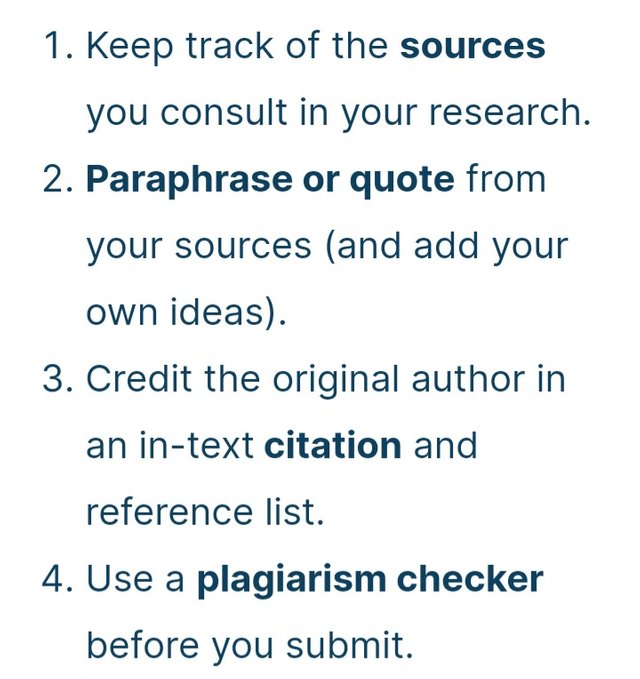
source
• If you are borrowing a part of a content most especially if it’s a literary content, you should do well to keep the length of the quotation to a minimum to avoid copyright infringement.
• Always give credit to authors whom you have borrowed their contents.
• Always correctly use citations.
• Make sure to check your posts and works against plagiarism.
The Steemit community heavily disregards plagiarism, therefore every steemian is obliged to be very acquainted with the content etiquette which guides you as you carry on with your activities on the platform.
I, @sage.lee have read and understood the Steemit Etiquette on Steemit Community and will do my best to embrace them.
I plead with @cryptokannon @steemcurator1 @steemcurator2 to kindly go through this post.
Thank you,
@sage.lee .
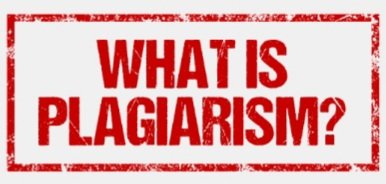
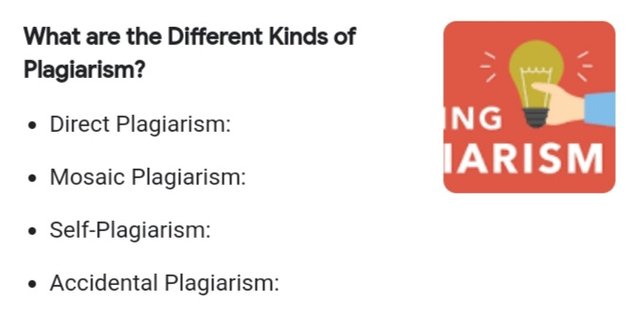
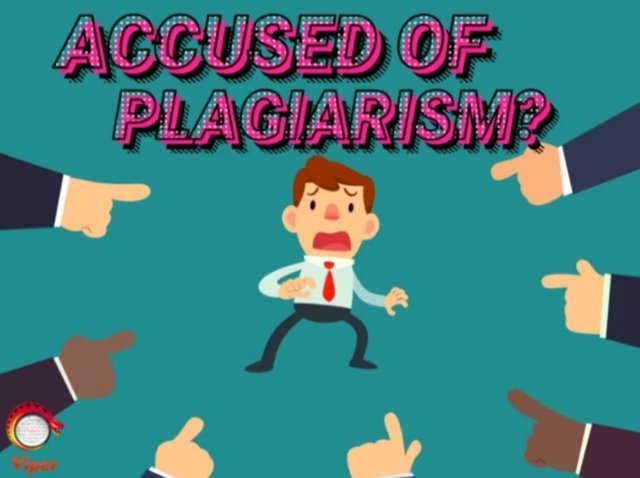
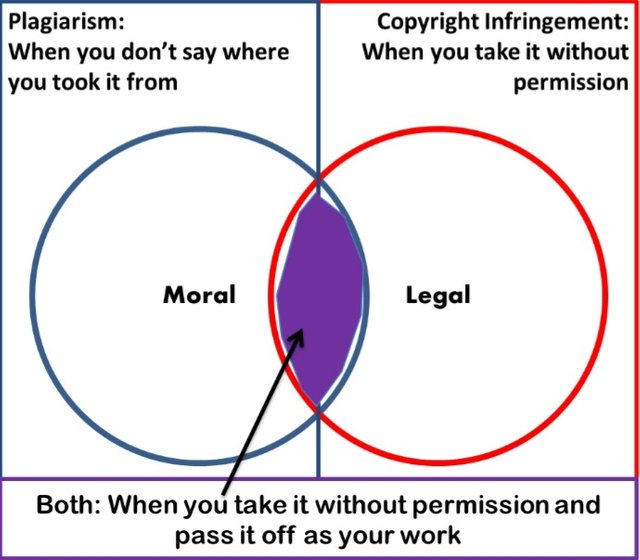
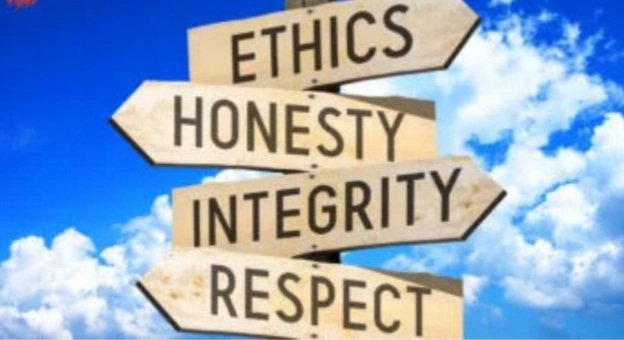
Your post contains traces of plagiarism. Please use the checker below to check your post and see the plagiarized areas:
https://www.duplichecker.com/
I've made the necessary ammendments. Please kindly review.